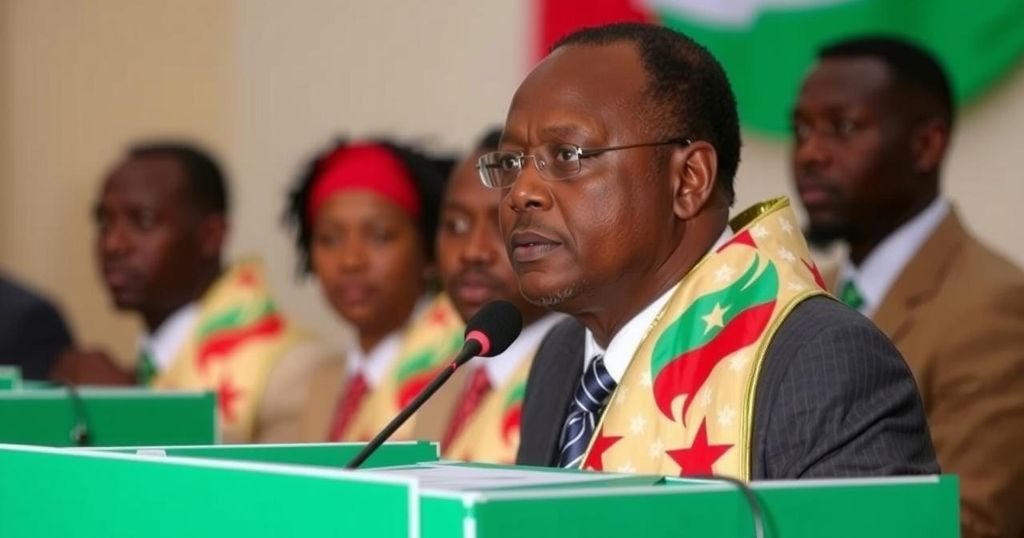Chad’s ruling Patriotic Salvation Movement won 124 of 188 seats in December’s parliamentary elections amid an opposition boycott. Voter turnout was 51.5%, and the elections are viewed as a consolidation of President Mahamat Idriss Déby’s power. Opposition parties criticized the elections as illegitimate, echoing concerns from last year’s disputed presidential vote. This electoral outcome occurs during a critical time for Chad, facing significant security and diplomatic challenges.
In December, Chad’s ruling Patriotic Salvation Movement (MPS) achieved a decisive victory in parliamentary elections, winning 124 out of 188 seats. This election, the first of its kind in over ten years, was marked by a 51.5% voter turnout, notwithstanding a boycott by over ten opposition parties, including the prominent Transformers party. The boycott was a reaction to the perceived lack of credibility in the electoral process, echoing sentiments from last year’s controversial presidential elections, which were also declared unreliable by observers.
President Mahamat Idriss Déby, who has been in power since 2021 after the death of his father and longtime leader Idriss Déby Itno, characterized the elections as a step towards decentralization, promising to distribute power to regional and municipal governments. However, the opposition dismissed the elections as a “charade,” indicating apprehensions that they would mirror the disputed presidential polls. Despite the opposition’s protests, the ruling party’s success reinforces President Déby’s political dominance in a time when Chad faces ongoing security threats and shifting international relations, particularly with France.
The significance of the parliamentary elections in Chad is profound, as they represent the nation’s attempt to transition from authoritarian rule to a more democratic governance structure. Following President Mahamat Idriss Déby’s military rise to power in 2021, following his father’s death, Chad has faced numerous challenges, including security threats from groups such as Boko Haram and complicated diplomatic relations. Despite these challenges, the ruling party’s recent electoral gains indicate a consolidation of power, unimpeded by the opposition’s boycott.
Chad’s recent parliamentary elections have illuminated the political landscape under President Mahamat Idriss Déby, highlighting both the ruling party’s significant electoral success and the opposition’s ongoing dissent. The boycott by major political factions underscores a profound skepticism regarding the electoral integrity, casting doubt on the nation’s democratic advances. As Chad navigates internal security crises and evolving international relations, the implications of this election will shape the nation’s future governance and political discourse.
Original Source: www.rfi.fr






